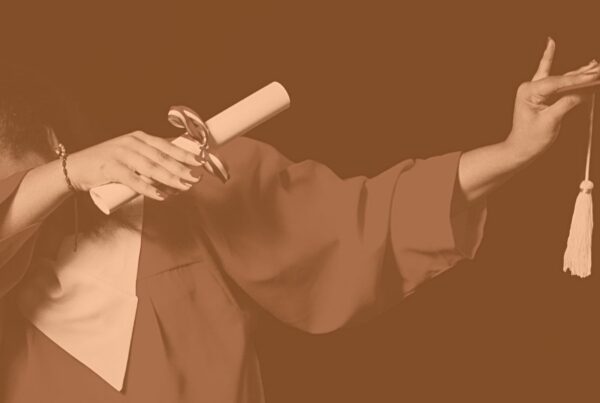Increasing productivity in the workplace has been a hot topic in the past few years. And issues such as work-life balance, the motto “work to live, don’t live to work”; have sparked quite a few conversations. It’s no secret that the amount of hours people work decreased over the past century. But the question remains. Should people work even less than 40 hours, thus increasing their productivity? Well, that’s exactly what we’ll be discussing on this week’s Event Brew.
In light of a recent article about Microsoft’s four day work week, we decided to talk about worker productivity in this light. Our hosts Will Curran and Dustin Westling share their opinions on the matter while discussing what this could mean for the events industry. So, are you curious to know what they think? Let’s get brewing!
Click here to the full audio transcription.
Increasing Productivity in the Workplace: Is The Four Day Work Week Worth It?
When Dustin first stumbled upon the article, he was skeptical about it. “Initially I look at it and from the headline I go, “Good luck in this industry.” Good luck shaving a day off when I feel like so many people are needing to add a day or two”, he says. “So many people that I talk to in our industry are burning the candles on both ends and are putting in a lot of hours. I don’t know a lot of people that work a 40-hour workweek”.
What Was And What Is
Will brings up an interesting statistic from the article. “John McDonnell was quoted saying, ” The average full time working week was 65 hours in the 1860s and then dropped to 43 hours in the 1970s.” I always thought the 40-hour workweek was standard always”. Dustin adds that “it’s a 110-year gap. I’m curious to know what happened in the middle of all of that and why that changed. So I’m guessing that over those 110 years there was, well, there were a couple of wars. There was probably more of a focus on family. I think cities got bigger. Traveling to work became more complex”.
“I think probably too, working conditions probably changed too”, says Will. “Back then you lived potentially probably in your work in the factory. It was more like indentured servitude than it was actual work. And it probably was because output was just like pushing machines and doing that sort of stuff, where interestingly enough it’s like obviously we’ve moved from having to work purely in factories to now we’re working in offices on computers and things like that”.
Four Days A Week!
If all of sudden Dustin was faced with a law that forced him to work four days a week, what would it be like? “I know for myself, I put in some crazy hours”, he says. “It’s so hard to identify how many hours a week I actually work. Because I don’t know that I ever get a lot of opportunities to turn off. And even when I’m not working, I’m always working. And that’s not because I’m always answering emails or I’m always, it’s that I’m always thinking about the work. I’m always planning something in my head whether it’s for my business, for my clients, for my employees. So I think if those were all billable hours, I would probably be rocking out 1860s work weeks”.
Increasing Productivity in the Workplace & Work-Life Balance
“I often wonder, in my role I get a lot of flexibility”, explains Dustin. “When I need to go to the dentist, I just make a dentist appointment and it goes on my calendar. And I don’t have to worry about how I’m going to get time off or anything like that. And I often wonder how the regular working crowd gets anything done. So, I do think that it does make sense to give your employees some time off during the workweek to go and get the things that you need to get done in life done without it constantly having to come out of normal working hours”.
Will agrees with Dustin’s point. “I think that there’s definitely a need for people to have time to do things outside of life. It seems like more and more there are other things going on that are causing us to have less time to do other things. And it’s funny, whenever you hear employees say they’re stressed. It’s always because, not because oh there’s so much going on at work, it’s work plus everything else going on in their lives. And they feel like, wow, I just never have time to do this”.
Let’s Hear About Worker productivity From The Pros
“So at Endless, we have an unlimited vacation policy, which means take time off whenever you need it”, says Will. “Like, look, we hire responsible people. We trust that you’re not going to abuse it. And if you need to take some time off, take it off. People tend to actually take fewer vacations, which is really, really interesting”.
“We share a policy when it comes to time off. And we allow for a lot of freedom in the time that our team needs”, explains Dustin. “And I’m definitely not sitting here counting hours and fussing about time people come in and what time they go home, and there’s a level of trust that needs to be there that you understand what needs to get done and that you’re going to do it”. He goes on to add that “I believe in flexibility. And I think trust is the most important thing there to say you take care of your life, and whatever you need to do, you make sure that everything that you’re responsible for is taken care of”.
 Other Steps Towards Worker Productivity
Other Steps Towards Worker Productivity
Meeting Durations
The article mentioned that the four days workweek isn’t the only contributing factor for a 40% increase in worker productivity. “It says that instead of making the standard for meetings be an hour, they’re 30 minutes”, Will explains. On this topic, Dustin believes that “when you have an hour, you use an hour. And when you have 30 minutes, you use 30 minutes. So many of the meetings I’m in could be done in 10 minutes if everybody came to the table organized and ready, and myself included in that”.
“What’s interesting is there’s been a side benefit for me being 100% remote is that literally it’s actually the rarity that I have in-person meetings”, says Will. “And I feel like it’s made me insanely more productive. Because the travel time is eliminated by 100%. Just clicking on Zoom links is probably the travel time that I have. Granted, the thing that kind of sucks is that you tend to end up having a lot more back-to-back meetings, so you end up not having any buffer time, so you’re just jumping from meeting to meeting”.
Number Of People
“The other one I thought was really interesting as well is they have a five-person cap on meetings”, adds Will. Here, Dustin says that “I sit in a lot of meetings with a lot of people in them. I think bigger meetings are okay as long as there’s a hierarchy established. I’m a big fan of the first and second chair. I think that if people need to be in the room and hear the information, they need to not be the active participants. I do find that when everybody gets an equal seat and everybody gets an equal spot at the table, that is what makes meetings drag on and on”.
“But yes, I think some efficiency in the people that are in the meeting and then establishing, right off the bat, some hierarchy as to what you’re there to achieve, who’s going to participate, who leads what is really important. And good meeting management and not letting meetings go off track”, he adds. “Whatever the meeting is about, don’t be afraid to be there for the part you need to be there for and then exit yourself out. So you’re not just sitting there because the meeting is in your calendar. You’re there when you need to and leave when you don’t need to be there anymore”.
Chatting
The last big thing the article talks about in regards to worker productivity is chat software. Slack quickly comes into the conversation. For Dustin, “in order for me to keep organized, I have my team communicate with me through Slack. And they’re welcome to use it for whatever they want, but I know that we try and keep our communications all in one place so Google Hangouts and Meet is where the majority of that would go. I haven’t really been all that pushy on how this team communicates with each other. I let them find their own groove and make sure that the resources are available for them”.
“Our whole team is on Slack”, says Will. “We’ve been on Slack since like the beta version of it. So we use it for project management. And I actually remember the push back I got in the beginning. People hated it. People really didn’t like it, and this is before threads existed, before you could set different notifications for different devices. I don’t think there was a snooze feature at all.
Increasing Productivity in the Workplace & Events: Could This Work?
“Would we have more events if more people have Fridays off?”, wonders Will. Dustin weighs in by saying that “I think that there’s a lot of events that are way too long. And yes, I think we should crack that open. Especially in the meeting and conference world, how what you’re doing with people’s time while they’re there. And maybe it’s not always about the total length of the event, but what it is that you’re doing with people while they’re there. I think the more important topic is what are you doing with people and what opportunities are you providing while they’re there?”. Food for thought!
Conclusions
And that’s a wrap on this week’s episode of Event Brew! Did this conversation about worker productivity spike your interest in a four-day workweek? Or do you believe that would be simply impossible for the events industry? Either way, let us know your opinion on the matter. And don’t forget to tune in next week for some more amazing brewing!
Resources
4 Productivity Tools to Better-Manage Your Mondays
33 Ways to Increase Dopamine to Boost Your Productivity
3 Killer Productivity Tools to Help You Ditch Your Busywork
Event Professionals Need To Stop Using The Word “Busy” – Event Brew #002
4-Day Workweek Boosted Workers’ Productivity By 40%, Microsoft Japan Says
Radical Productivity Hacks for Event Planners: Take Cold Showers, Become Homeless, and More [Einsteins’ Favorites]











